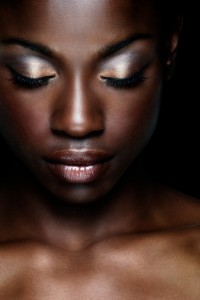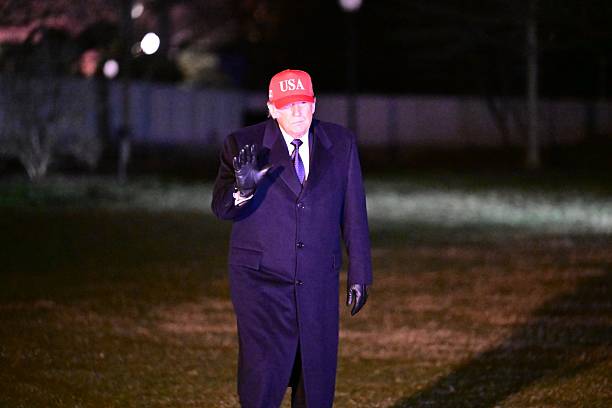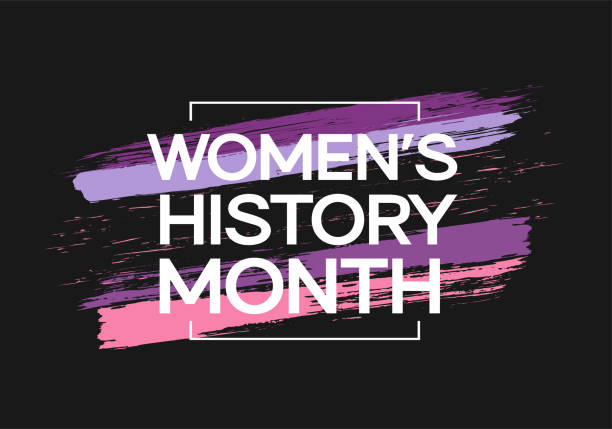(ThyBlackMan.com) So, we spoke up fiercely against Sotashi Kanazawa’s and Psychology Today’s production of a racist article that insinuates that Black woman are less attractive than women of other ethnicities. This was a great example of what we as Black women can do if we banded together to combat forces that serve to demean and oppress us. But what about our every day internalization of things that attack our self esteem, the way we view our physical features, and ultimately, the lengths we go through to alter them in order to fit in with someone else’s mandates? As Black women, we combat myriad “isms”: racism, sexism, and colorism, to name the most obvious. If we happen to be members of the LGBT community, the woes are increased. I was elated to see our camaraderie, but where do we go from here? We still have stuff within our community that needs cleaning up before we can be well equipped to combat outside issues.
Yet again, Black women were insulted on a national scale last week, with the online publishing of Satoshi Kanazawa’s article “Why Are Black Women  Rated Less Physically Attractive Than Other Women, But Black Men Are Rated Better Looking Than Other Men?” by Psychology Today. There was also a subsequent article by Dr. Michael Mills, which posed as to whether we as Black women should be thankful for Kanazawa’s article. What is going on? And how are Black women responding to this? Thankfully, there has been a firestorm of responses from around the globe, including other bloggers on Psychology Today’s website. Sophia Nelson, Beverly Bond, and LZ Granderson recently had a great discussion about this issue on CNN with Don Lemon. You may also want to check out Granderson’s article in response to Kanazawa’s “research.” I promptly signed my name to the online petition that was eradicated on Change.org with the purpose of calling for Kanazawa’s termination as a contributing writer, stricter editorial policies, and a formal apology from the magazine.
Rated Less Physically Attractive Than Other Women, But Black Men Are Rated Better Looking Than Other Men?” by Psychology Today. There was also a subsequent article by Dr. Michael Mills, which posed as to whether we as Black women should be thankful for Kanazawa’s article. What is going on? And how are Black women responding to this? Thankfully, there has been a firestorm of responses from around the globe, including other bloggers on Psychology Today’s website. Sophia Nelson, Beverly Bond, and LZ Granderson recently had a great discussion about this issue on CNN with Don Lemon. You may also want to check out Granderson’s article in response to Kanazawa’s “research.” I promptly signed my name to the online petition that was eradicated on Change.org with the purpose of calling for Kanazawa’s termination as a contributing writer, stricter editorial policies, and a formal apology from the magazine.
Great work…But now what? This does not make the issue go away. It’s not random that Don Imus felt at ease with calling the female Rutgers basketball team a bunch of “nappy headed hoes” and reality tv star Christina Hopkins had no problem telling Black women via viral video earlier this month that “if you are a Black girl, you should shut up, because you are Black, you are a nigger.” It’s coming from somewhere. Where? It’s no secret that there is deep-rooted inherent racism in this country. Do not let some politicians and social movement organizations fool you into believing that this is a post racial society, because it is not. If the First Lady of the United States can be brazenly compared to a monkey by members of this society, let’s not ever believe that we are living in an egalitarian society.
But before examining the macro-level, let’s look at what’s going on in our backyard, at a micro-level. I discussed the Kanazawa’s with students in one of the courses I teach in correlation to the study to that of the publication of “The Bell Curve” by Hornstein and Murray, in the mid-late 90’s. I explained to them that this duo used “scientific research” to insinuate that African Americans were cognitively inferior to Caucasians based on genetics. After listening to the comparisons, one of my students, a young Black man, no older than 21, chimed in and said “yea well ya’ll are less attractive, mainly ‘cause of ya’ll attitudes.” I gave myself pause. Hold the presses!!! What?! So then, I brought Kanazawa’s article up on Facebook. one of my friends, a Black man in his early 30’s replied “look to your left, look to your right, how many Black women you see with a perm or a weave to make it look like they have straight hair…stop trying to look like a white woman…” okay. He then follows up with “but I love my Black queens, nothing like ya’ll in the world, real talk.” Interesting…now, what about the music or television programs we internalize on an everyday basis?
We have sexualized music videos, songs, and televisions shows, in which rappers and stars are given the authority to state their preferences in terms of what they want their women to look like and what they want their women to do. When this trickles down to members of society, we have women rushing to the hair salons for 22 inch extensions, to the mall for the skimpiest items of clothing, etc. Why? Earlier this year, Black women were crooning along with Drake as he and Chrisette Michelle sung the hook to Rick Ross’ “Aston Martin Music.” Where they paying attention to the extended mix in which he raps and proclaims “I hate to call women bitches, but the bitches love it?” As young Black women listen to Camron’s “Hey Muma” (which is currently #8 on Hot 97.fm’s Top 25 playlist), are they following along as they are urged to address him as “your highness?” I urge you to watch 106th and Park and count the number of models and/or singers within these music videos who are:
devoid of wigs and weaves,
of dark complexion,
larger than a size 8
clothed in a non-sexual matter
not gyrating suggestively in front of a man
not perched on a car or in bed.
What’s the count?
So what does this all mean in relation to Kanazawa’s article? I have my own conclusion, but I don’t want to sway anyone’s opinion. My goal with this article is to present these issues to you, and have you conjure up your own assumptions. But I don’t want you to stop there. I want you to consider what can we do as a community of Black women to face down this racist, misogynist, viewpoints of us. It’s not enough to just be upset at one issue after another without taking action. How many of us are willing to make the commitment to ACT?
Staff Writer; T.S. Taylor
Feel free to also connect with this sista via Twitter; ProfToniBK.

















Ok, lets not get to carried away about the hair thing. I despise the doll, it’s asinine, rediculous, to say the least. I would never, ever, ever allow my grandchildren to have such a “thing”, just like I would not allow my children to name my grandchildren any names that you could not look up and find a meaning for it. But again lets not get carried away..at the age I am now I am at the stage in my life (genetics) my hair is thinning. I thank God for wigs (would never wear a blond one)and pieces etc I look as natural as possible under the circumstances. Nevertheless, it is not only us but look at the reality shows, football players, except for the old school actors, llok at what the majority of our “high end” black males marry, hook up with, etc. What do they call it “arm candy” and look at how they look. What kind of message are they sending the average yet beautiful, educated, loving black women if you don’t look like this and don’t have the sense God gave a crow bar, you are not good enough for me or my money, everybody say hm-m-m-m. So with that being said, I will continue to teach educate and pour into the young women and girls around me especially mine, what beauty really is and that it begins on the inside and radiates to the outside, beauty is as beauty does.
I would say that black women are oppressed on several levels.
1) Culturally – African and Caribbean societies are based on a matriarchal inner structure in which women play a major part. They manage the home, do a lot of the work (running their own businesses)and rear their children. Traditionally these societies were hypocritical in the sense that while it was the women that did/and still do most of the work, men were given a lot of freedom in areas such as polygamy and abdicating responsibility for the upbringing of their children. It was and still is common in these societies for men to migrate from one woman’s home to the other leaving children behind in their wake, which ultimately the mothers support. Women were traditionally denied education in these societies and the pride of fathers was in their sons. This left an indelible negative imprint on the culture of later migrant societies, which followed the same social structure, but in a alien and hostile societies – the USA during slavery, the Caribbean and Europe. The aim of these ‘host’ societies was originally to dehumanise all people of colour, and women were degraded racially and sexually to justify racism and slavery.
2) When black women thus began to live in these societies they had to contend with the negative legacies of their own indigenous culture, as well as all the prejudice of white supremacy, and prejudice against women in general in all societies. They ended up at the very bottom of the pile. They therefore carry a burden which no other race of women does. Most women only have to contend with issues arising from their own native cultures directly.
3) This burden still exists today. Slavery is historically a recent thing, and racism is still very much around. The negative images that have been projected of the black race over the last 200 years are imprinted in people’s minds. While black women may not be able to change white culture or the world, black people in general need to change perceptions of themselves and develop a healthy relationship with their own ethnicity. Black culture errs in achieving this by having a love-hate attitude to what it perceives as white culture. Black culture often derides positive aspects of white culture such as education and correct use of English as features of the ‘enemy’ culture and rejects these, instead of understanding that these features are not the properties of white culture alone. They are noble characteristics in all cultures. Ironically however, black culture embraces aspects of visual white culture, such as whites’ racial characteristics. It therefore rejects the positive, which is achievable and embraces those characteristics which are impossible to achieve. This is because historically having an education did not improve our ancestor’s lot in life when they were slaves. They were judged on the basis of their racial characteristics and this is so deeply ingrained in our psyche that we feel by changing ourselves physically we may become more beautiful and desirable. We therefore become parodies of ourselves and look like ‘wannabe whites’ but without the education and dignity that white people are so good at getting for themselves. We think it wrong for a black man to speak like a white educated man or dress conservatively in ‘white’ clothes, yet do not see anything wrong in our women wearing ‘white’ hair or bleaching their skin. Black culture therefore upholds the right of men to be distinct and different from white culture (even though sadly the best role-model we can produce is the rapper)but denies black women the right to develop a similar distinct racial persona (unless this follows negative racial stereotypes created by whites – such as the black loud mouth mammy or ghetto sista).
Black culture needs to detach from this form of self-loathing and redirect our course on educating our people, dignifying our natural features and characteristics and defining our own place in the world. We need to dignify our women by treating them with respect and eradicating the negative aspects of our own history and culture. We need to educate our youth and turn them into eloquent, intellectual individuals (not stating that these positives will make them ‘white’ – they will not, they will make them ‘educated’. Perhaps then we shall stop looking at white culture as the be-it-all-and-end-it-all of our existence, develop a balanced identity and create positive stereotypes that dignify blacks. The civil rights activists of the 1960’s and 1970’s got it almost right. Where has that positive stereotype gone to? Where are the Martin Luther Kings and Maya Angelous of today?
The African American community is still suffering from psychological damage. Black women have a deep self hatred of themselves and their black men. Like wise black men also have many issues, until both men and women come together and resolve this crisis our community will never heal.
Sometime ago I watched an episode about India and the supply of natural Hair for Colored people. I was shocked to realze that these hairs are sourced from temples of idol gods where the people are told to remove their hairs to rebuke BAD LUCK.
This same hair pieces are now sold by Chinese all over the US to unsuspecting people of color, thereby transfering BAD LUCK to colored people all over the world. Spiritually it is damning to crown your head with anything offered to an idol as a person of color. I do not know about caucasians.
Remember the good old days of Afro hair do? what happened to these days of self pride? To use Glue to glue crazy hair pieces to ones head is very low. Somebody needs to help our race, and I mean now.
I thank GOD my wife doesn’t have to use the SATANIC HAIRTIES.
Great article! There’s so much to say about each topic raised I don’t know where to start. I will pick one of the points that stood out. “one of my friends, a Black man in his early 30’s replied “look to your left, look to your right, how many Black women you see with a perm or a weave to make it look like they have straight hair…stop trying to look like a white woman…””
There is a major difference in celebrating the versatility of your hair and in trying to “look like” anyone. I enjoy wearing my natural hair pattern- whether it be wild and proud or nicely styled. However. I also enjoy bringing out my flat iron from time to time to change it up. (I doubt most men really know the difference between permed hair or flat ironed, so in this post I treat it as one in the same.) It’s not to imitate anyone – but simply because I can. I enjoy the hair I was given and all that it can do.